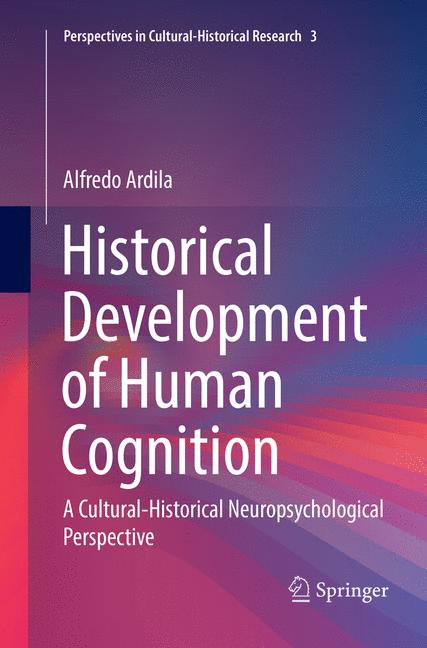This book addresses a central question: how did cognition emerge in human history? It approaches the question from a cultural-historical, neuropsychological perspective and analyses evidence on the historical origins of cognitive activity; integrates information regarding cross-cultural differences in neuropsychological performance; and discusses how adopting a historical and cultural perspective in the behavioural neurosciences can help to arrive at a better understanding of cognition. Lastly, it proposes general guidelines for future research in the area.
1 Introduction.- 2 Origins of Language.- 3 Origins of Spatial Abilities.- 4 Origins of Writing.- 5 Origins of Calculation Abilities.- 6 Origins of Executive Functions.- 7 Culture and Cognitive Testing.- 8 Toward the Future. Alfredo Ardila is a psychologist at the National University of Colombia. He completed his PhD in Neuropsychology at Moscow State University, where he worked with Alexander Romanovich Luria. He has been a professor of neuropsychology in various countries, including Colombia, Mexico, Spain, Ecuador, Paraguay, Peru, Russia, Serbia, Chile and Venezuela. Currently Ardila is a Professor at Florida International University, Miami, Florida, USA. He is the author of over 400 journal papers and book chapters, and has authored or edited 30 books in the cognitive neurosciences and related areas. He has been president of several professional associations, including the Latin American Association of Neuropsychology, Latin American Society of Neuropsychology, and Hispanic Neuropsychological Society. Currently he is also Editor-in-Chief of the journal Neuropsicología, Neuropsiquiatría y Neurociencias. This book addresses a central question: how did cognition emerge in human history? It approaches the question from a cultural-historical, neuropsychological perspective and analyses evidence on the historical origins of cognitive activity; integrates information regarding cross-cultural differences in neuropsychological performance; and discusses how adopting a historical and cultural perspective in the behavioural neurosciences can help to arrive at a better understanding of cognition. Lastly, it proposes general guidelines for future research in the area.




